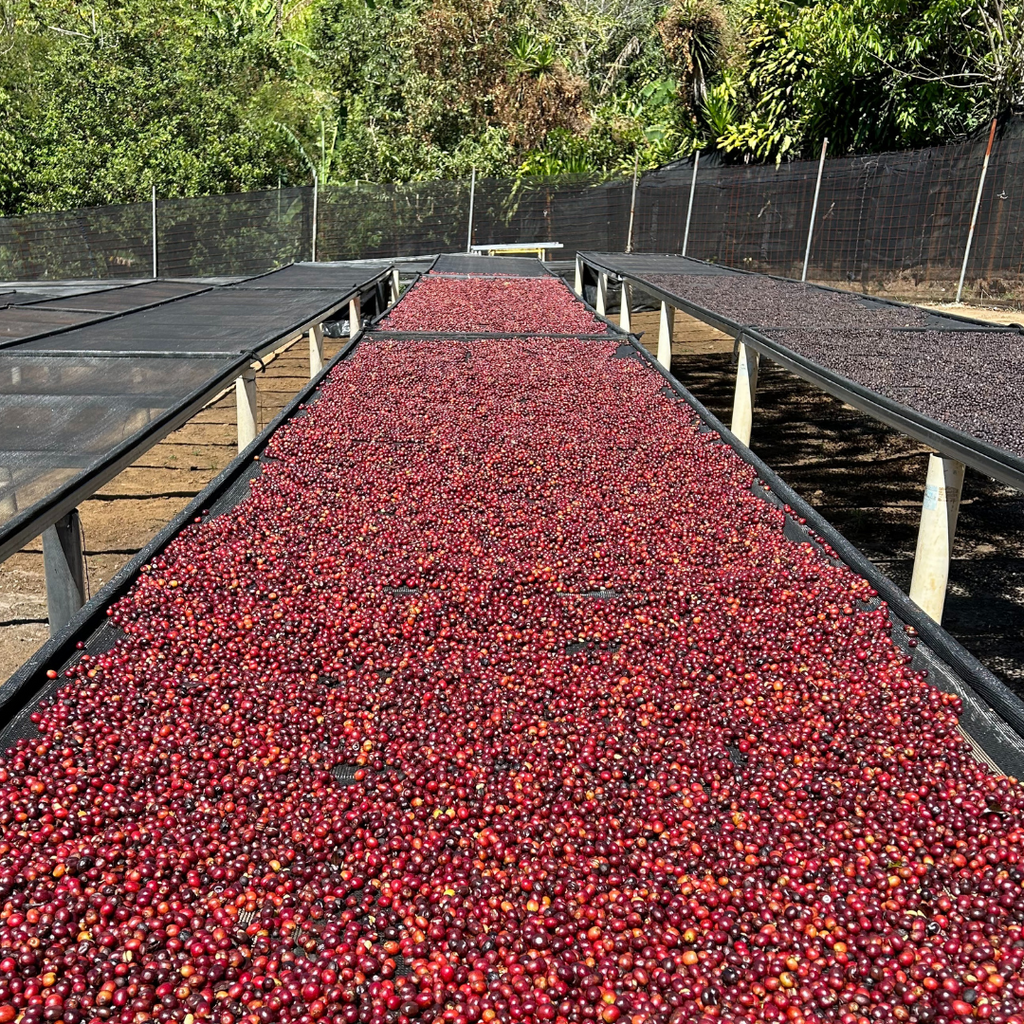We love naturals. What exactly makes naturally processed coffee so special?

Many factors, such as origin, variety, roasting, and preparation, influence the taste of coffee. The processing of coffee beans also plays a major role! The goal of processing is to separate the picked coffee cherries from their pulp shortly after harvest and to dry them in preparation for transport. The methods used vary widely and mostly depend on the geographical, climatic, and cultural factors of the coffee-growing region. A basic distinction is made between two processes: wet and dry processing .
In contrast to the washed process, there is the dry processing, also called natural , in which the ripe coffee cherries first dry in the sun before the dried pulp and skin are mechanically removed.
In natural processing, the coffee cherries are spread out on the ground or on elevated drying racks immediately after harvesting, without first removing the outer layers (skin and pulp). The cherries are then dried in the sun or in drying racks, where the pulp naturally ferments and shrinks around the bean. This process can take several days to weeks, depending on weather conditions and region.

After the coffee cherries are sufficiently dried, they are mechanically or manually stripped of their hard, dried outer shell and parchment. The dried coffee beans are then sorted by size, weight, and quality before being stored and shipped.
This method emphasizes fruity-sweet and complex flavors and is particularly common in regions with water scarcity.
Our coffee recommendation:
Immerse yourself in the world of our naturals Aricha , a unique coffee from the Yirgacheffe region of Ethiopia. The coffee cherries are gently dried, allowing the intense aromas of red berries, bergamot, and honey to fully express themselves. With a juicy body, mild acidity, and intense sweetness, Aricha is a true delight for naturals fans.
